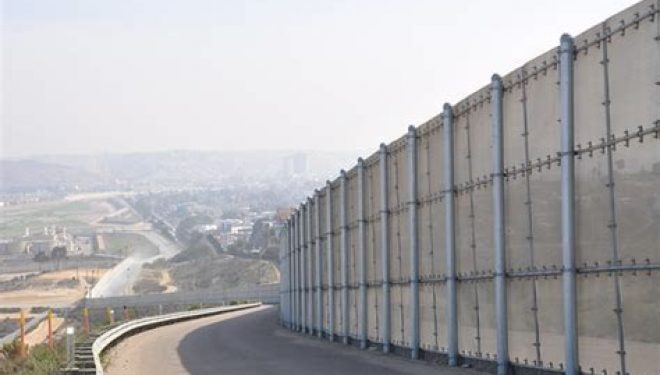
The U.S. District Court for the Northern District of California has ruled that the Trump administration’s reallocation of military construction funds to build a “border wall” was unlawful. The lawsuit challenges President Trump’s proposed reallocation of $3.6 billion in military construction funds under 10 U.S.C. § 2808 (Section 2808) to build the wall. This latest ruling does not dispose of the action, however, as the District Court has only partially granted plaintiffs’ motions for summary judgment. But in doing so, the court also issued a permanent injunction enjoining the border barrier construction projects. [State of California v. Donald J. Trump, et al.; Sierra Club v. Donald J. Trump, et al., 407 F.Supp.3d 869 (N.D. Cal. 2019).]
Factual Background
This action is one of many legal actions involving President Trump’s much-publicized campaign promise to construct a wall along the United States border shared with Mexico. There is a separate case challenging the border wall in Texas, and a number of other active suits challenging the border wall funding plan. The plaintiffs in the two related cases that are the subject of this order include the Sierra Club and a coalition of nine states, including California, Colorado, Hawaii, Maryland, New Mexico, New York, Oregon, Wisconsin, and Virginia. For purposes of this order the court was careful to point out that it offers no opinion regarding whether the challenged border barrier construction plan is sound policy. Rather, the issues before the court were whether President Trump’s proposed plan for funding the border wall under Section 2808 exceeded constitutional and statutory authority and whether the proposal violated the National Environmental Policy Act (NEPA).
The Consolidated Appropriations Act of 2019
In February 2019, Congress passed the Consolidated Appropriations Act of 2019, which made $1.375 billion of funds available “for construction of primary pedestrian fencing, including levee pedestrian fencing, in the Rio Grande Valley Sector.” The same day, President Trump declared a national emergency at the southern border and invoked “construction authority” under Section 2808. Section 2808 was just one of several alternative sources of funding Trump identified for border construction after Congress only appropriated $1.375 billion for the project (Trump requested $5.7 billion). Under Section 2808, the Secretary of Defense may use funds previously appropriated for other projects in limited circumstances where three factors are satisfied: 1) there is a national emergency that requires use of the armed forces, 2) the project is a “military construction project” are 3) the project is “necessary to support such use of the armed forces.” Plaintiffs argued the Trump administration failed to satisfy all of these prerequisites, and the U.S. District Court for the Northern District of California agreed—holding that the proposed border barrier projects were not military construction projects under the statute and were not necessary to support use of armed forces.
The U.S. District Court’s Decision
The NEPA Claim
Plaintiffs also sought a declaratory judgment deeming unlawful Trump’s failure to comply with NEPA before undertaking the proposed military construction projects under Section 2808. They argued that NEPA was violated because an Environmental Impact Statement (EIS) must be prepared whenever a federal agency’s project “might significantly affect environmental quality.” No such EIS was prepared for the proposed border wall project. The court found that the language of Section 2808 is clear on its face, in that it permits the Secretary of Defense, if properly acting within his authority under Section 2808, to undertake military construction projects without regard to NEPA. The exact terms of the statute authorize the Secretary of Defense to undertake military construction projects “without regard to any other provision of law.”
The Limits of Section 2808
Although the court rejected Plaintiffs’ NEPA challenge, it referenced the prior portions of its ruling which discussed the limits of Section 2808. Specifically, the statute may only be invoked in the event of war or a national emergency, and the Secretary of Defense must still establish that the proposal is a military construction project necessary to support the use of the armed forces. Because the court already found that Section 2808 was not properly invoked by President Trump, the “without regard to any other provision of law” language was never triggered. However, the court did not reach the question of whether a proper invocation of Section 2808 under different circumstances could theoretically still require NEPA compliance.
Conclusion and Implications
Although the District Court found that a permanent injunction is warranted in this case, it decided to stay enforcement of the injunction pending appeal. The court also certified its judgment for immediate appeal. Appeals have been filed and are currently pending before the Ninth Circuit Court of Appeals.
(Nedda Mahrou)




